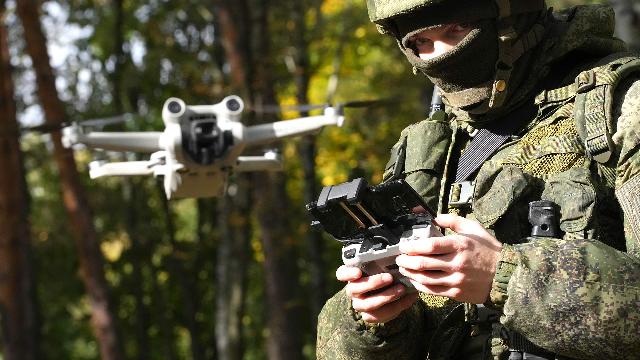Russia's first unmanned aviation faculty has started its work
Several UAVs hover in the sky above the forest belt, artillery strikes with lightning speed, small assault groups are attacking — this is how exercises are held at the Moscow Higher Combined Arms Command School (MosVOKU). The drones, which conducted reconnaissance, corrected artillery fire and struck, were controlled by cadets of Russia's first UAV faculty at a military university. The new military specialty has already become prestigious — this year the competition was about five people per place.
"Resistance will be minimal"
A small dot appeared in the sky, and then an approaching buzzing was heard — this is a reconnaissance drone that began to search for the positions of a simulated enemy. He passes over the trees several times and hovers near the trenches. The defenders don't open fire so as not to give away their positions, but it doesn't help them much.
— Baikal, the enemy has been detected, the coordinates of the enemy's firing points have been clarified, artillery can be called! — in the dugout of the platoon commander, the radio hissed, on which the UAV operator reports.
"Accepted!" Baikal replied.
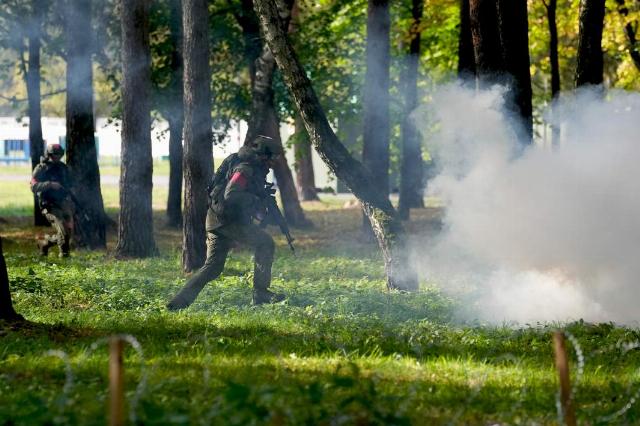
Photo: IZVESTIA/Dmitry Korotaev
Image source: iz.ru
He immediately contacted the gunners, and the pops of explosive packages, imitating the explosions of artillery shells, were heard on the territory of the support area.
After the artillery preparation, several assault groups advanced to storm the enemy's positions, each of which includes two or three people.
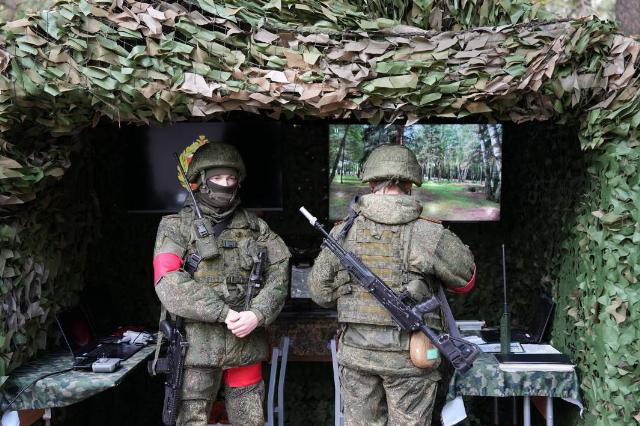
Photo: IZVESTIA/Dmitry Korotaev
Image source: iz.ru
The command and observation post of the platoon commander is designed in a new way - it has two large screens, which displays a picture from quadrocopters watching the course of hostilities. She helps the officer to assess the situation correctly.
— Small, the enemy has losses on the right flank, jump into the trenches, the resistance will be minimal!
"Accepted!" — the cadet with the call sign Maloy answers. After throwing a grenade, a group of three soldiers jumps into a trench, where shots and explosions begin to ring out. The stormtroopers clung to the trenches and began to take the dugouts.
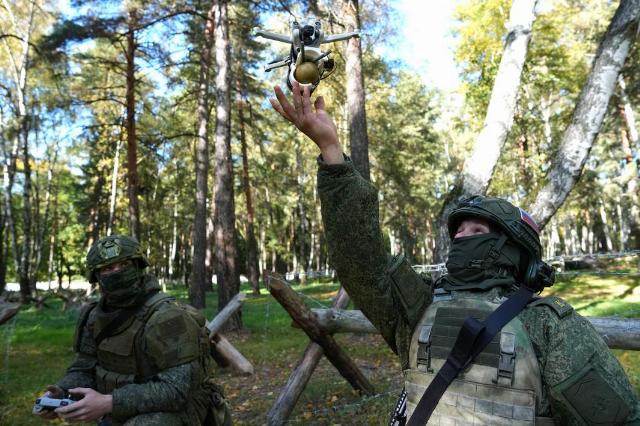
Photo: IZVESTIA/Dmitry Korotaev
Image source: iz.ru
FPV drones flew to their aid to cut off the reinforcements that the defenders were trying to pull up to the front line with precise strikes.
After the reinforcement group suffers heavy losses and stops advancing from the rear, it becomes clear that the fate of the mainstay is sealed.
"That's how they're fighting in the SVR zone right now," the officers say. — Drones helped to find enemy positions, ensured the effectiveness of artillery, and then cut off the approach of reinforcements with precise strikes. Five years ago, such a picture of combat would have greatly surprised everyone, but now without UAVs, combat operations are unthinkable.
Cadets with combat experience
"In the new academic year, we have started training in a new military specialty, The Use of ground forces units with unmanned aerial vehicles," Colonel Yevgeny Gudnikov, Deputy head of the Moscow Military Academy for Educational and Scientific Work, told Izvestia. — Today we have a scheduled lesson with first-year cadets.
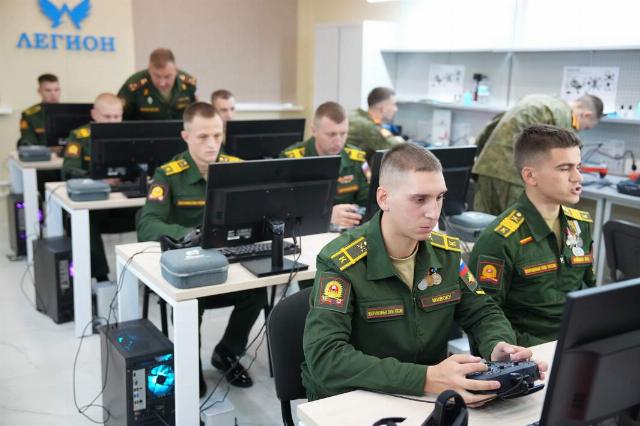
Photo: IZVESTIA/Dmitry Korotaev
Image source: iz.ru
In the company of future UAV unit commanders recruited this year, 80 cadets are three platoons.
—There are 43 participants in a special military operation in a company of 80 people, and 20 of them have experience in the combat use of drones," Senior Lieutenant Alexander Balanovsky, commander of the UAV company, told Izvestia. — The remaining 23 are stormtroopers, commanders, signalmen who have been through fire and water. They decided to start a new business for them, as they consider it promising.
Alexander is proud to say that in his unit there are both UAV operators and engineers who can independently manufacture ammunition.
"Both the intelligence officers who worked on the Maviks and the Special Operations Forces who used kamikaze drones,— the senior lieutenant noted.
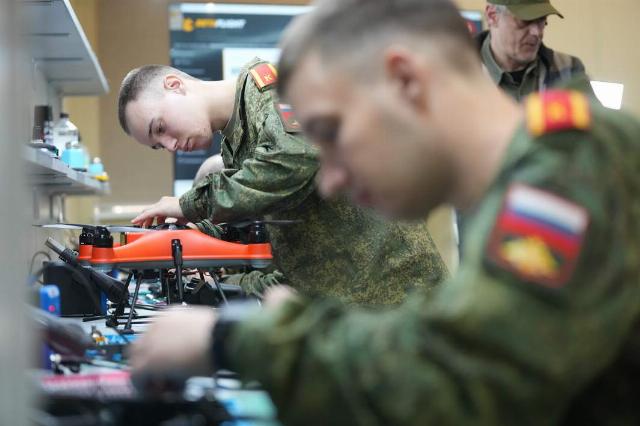
Photo: IZVESTIA/Dmitry Korotaev
Image source: iz.ru
According to him, all the fighters who have passed their military training have a wealth of experience and strong motivation, and this is very good for the learning process.
Cadet Ivan Shevyrev was awarded the Zhukov Medal — he conducted reconnaissance in the Maviki in the SVO zone.
"I was awarded for detecting an enemy group in time at night, stealthily approaching our positions," he says. — They were covered with an automatic machine-gun grenade launcher, thwarting the night attack.
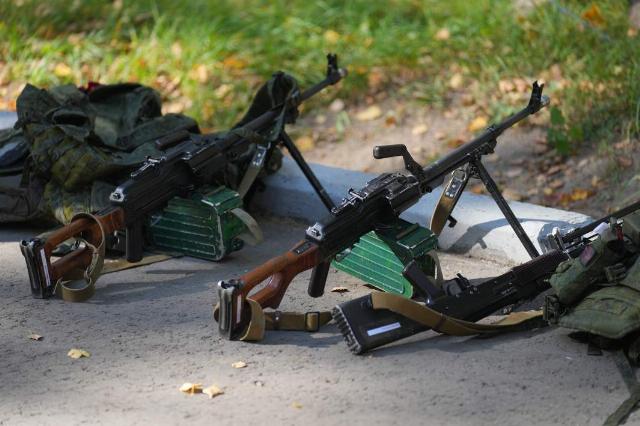
Photo: IZVESTIA/Dmitry Korotaev
Image source: iz.ru
Ivan Charuysky also came to the college after his military service, where he was wounded four times. He is 36 years old and has five children.
"I was the commander of an assault unit," he says. — From my experience, I can tell you what the future is for UAVs, that's why I'm here.
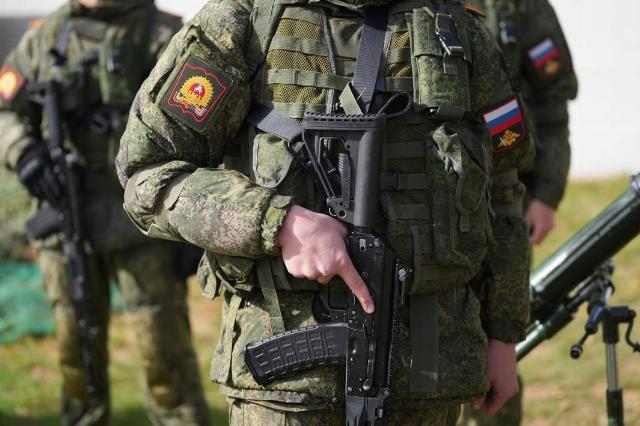
Photo: IZVESTIA/Dmitry Korotaev
Image source: iz.ru
Company commander Alexander Balanovsky is also a veteran.
"Yesterday's schoolchildren will follow the participants in the battles, and we have such cadets," he says. — A good and promising team has been selected.
The future of unmanned systems troops
It is expected that in the future the number of such training companies will increase — the new troops of unmanned systems, which were created this year, need commanders.
The new specialty has already become prestigious — this year the competition was about five people per place. The cadets will master it for four years.
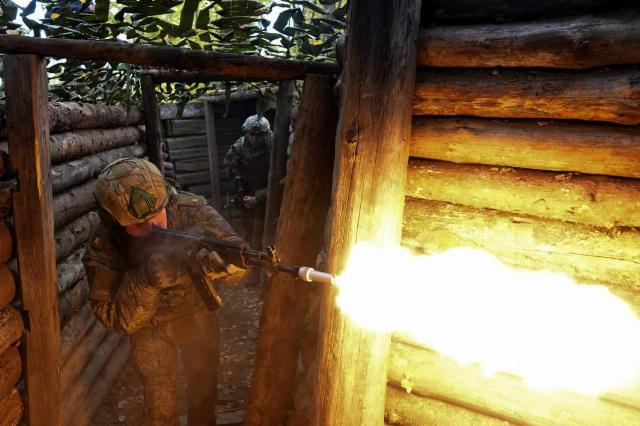
Photo: IZVESTIA/Dmitry Korotaev
Image source: iz.ru
The school will produce lieutenant platoon commanders of unmanned aerial vehicles. They are now actively forming in motorized rifle battalions.
— We will learn how to work on quadcopter and airplane—type drones - on their reconnaissance or strike varieties, — said Alexander Balanovsky. — In the first year, we will master FPV drones, then we will move on to more serious devices, including Lancets, Eagles and others. Most likely, we will have graduates who will receive training for operators of large drones, such as the Orlanov-30.
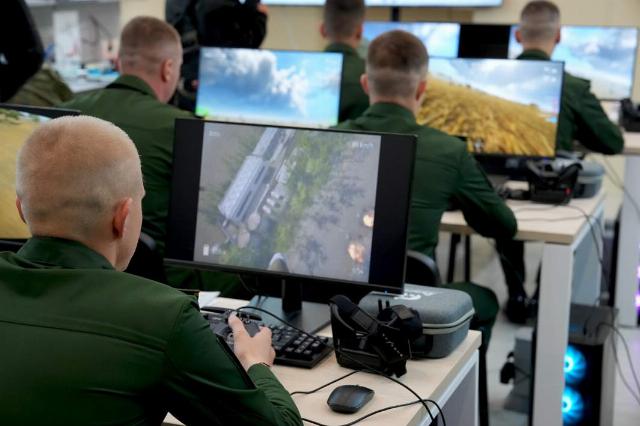
Photo: IZVESTIA/Dmitry Korotaev
Image source: iz.ru
After the training ground, they are invited to a special class to teach cadets how to work with UAVs and repair them. In the center are rows of tables with joysticks and large screens.
— Here, the guys "fly" on simulators, practice their skills and reactions, — says Alexander Balanovsky. — Without a simulator, you will immediately crash the UAV. It is necessary to learn how to control unmanned vehicles, and it is not so easy to do this.
Nearby there are desks where cadets repair unmanned vehicles. They are equipped with air hoods that remove the smoke from soldering irons from the room: cadets must be able to do everything, including carry out complex repairs of the equipment entrusted to them. The training program is designed so that future officers receive all the necessary skills.
Bogdan Stepovoy
